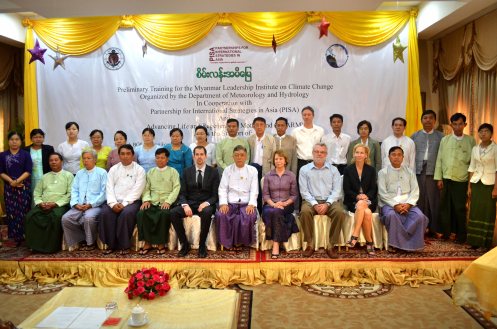
Photo courtesy of Sandi Moynihan
“This is the first training on climate change for our ministries in Myanmar”
– MLICC Delegate, Ministry of Health
By Suzanne Kelly-Lyall
Partnerships for International Strategies in Asia (PISA), Yangon-based NGO ALARM, Heinrich Böll Stiftung (Bangkok/Yangon), and The Chino Cienega Foundation joined forces to offer a week-long Myanmar Climate Change Leadership Institute (MLICC). Forty-five mid-level government officials recruited from Myanmar’s line ministries with direct responsibility for natural resource management, environmental conservation, agriculture and health, took part in a specialized program to introduce the concept of Climate Wise Development (CWD).
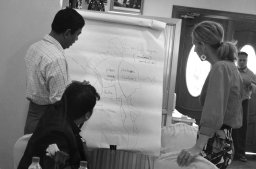
Photo Courtesy of Sandi Moynihan
The collaborative effort included a session on “green finance mechanisms” led by Heinrich Böll Stiftung’s North America Office Associate Director Liane Schalatek, professors drawn from The George Washington University, as well as experts from across the region. Under PISA’s leadership, principles of CWD were introduced using active learning methods that included analytical, problem-solving exercises rooted in the real-world challenges that Myanmar faces today. From assessing large-scale development projects such as the proposed Dawei port and how it might impact communities, to considering renewable energy sources and how to leverage natural resources for the common good, the MLICC challenged policy-makers to consider an alternative path to development.
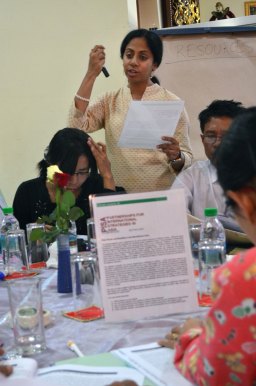
Photo courtesy of Sandi Moyniha
- Photo courtesy Sandi Moynihan

PISA uses the urgent and shared issue of global climate change to illustrate the need for environmental governance and sustainable development. In so doing, we introduce the necessity of participatory decision- making and information sharing with sensitivity to existing political norms. During this easily reversible period of transition, together with ALARM and Heinrich Böll Stiftung, PISA successfully conducted a program that will build confidence over time and gradually bridge existing gaps between officials and civil society by unveiling points of mutual concern. Working within the climate change “frame” enabled discussion of sensitive political and economic matters, from increasing transparency in natural resource management to the ways in which groups are understood to be vulnerable and marginalized. The MLICC sought to build on the momentum toward adoption of a climate-wise development approach, namely one that is both more sustainable and equitable, which civil society organizations and reform-minded officials alike have sought to launch. Many of the delegates possessed technical expertise in functional areas such as hydrology, forestry, or public health. However, few have had the opportunity to share their knowledge across ministries. Consequently, at the beginning of the MLICC, analysis and problem-solving strategies often reflected narrow concerns. By the end of week, teams had grown comfortable with working collaboratively across ministries, areas of expertise, gender, and seniority. Teams often succeeded in developing detailed plans of action, showed a capacity for thought leadership and creative approaches to addressing the complex challenges and trade offs that development against a background of uncertainty presents.
The MLICC was strengthened by wedding the resources of three diverse organizations together; each making a distinctive contribution. Next steps include additional in-country short courses that target important ministries for climate change policy, as well implementing the longer-term goal of providing scholarships to promising, emerging leaders to attend PISA’s Summer Leadership Institute on Climate Change, a three-week intensive program to be held on the campus of The George Washington University.
Tags: Burma, climate change, climate change Adaptation, climate wise development, leadership, Myanmar, Political Reform, sustainable development
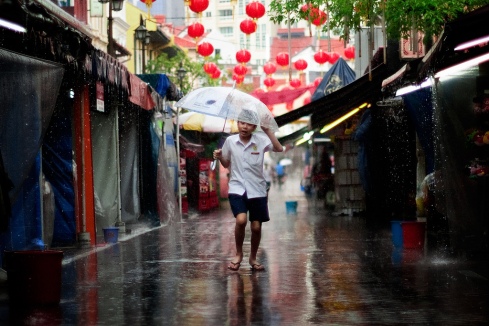

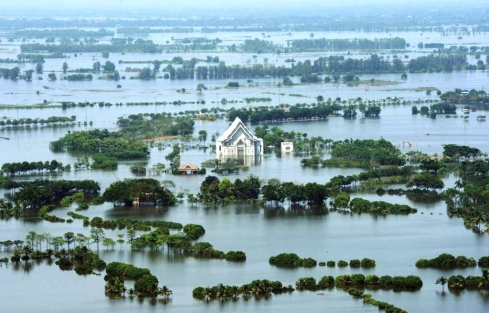
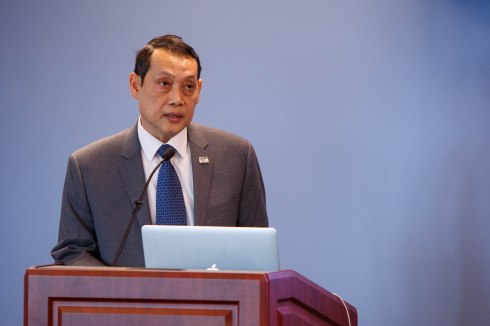
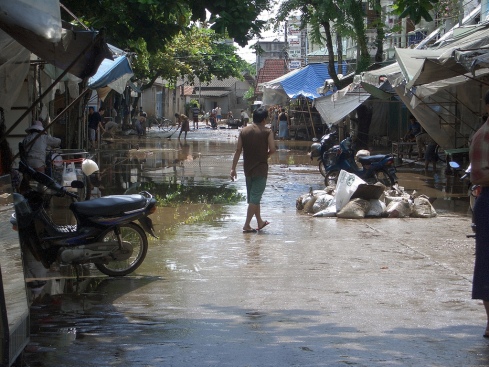

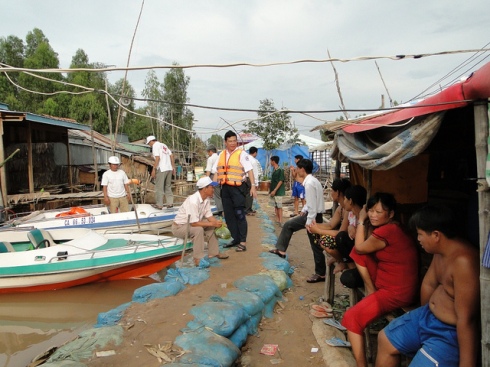
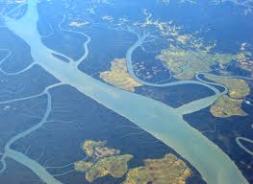






Latest Commentary